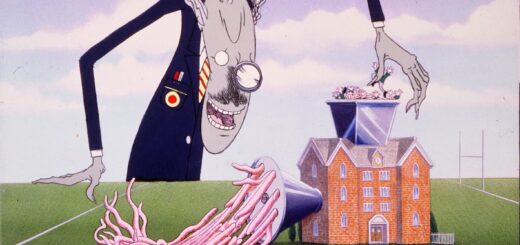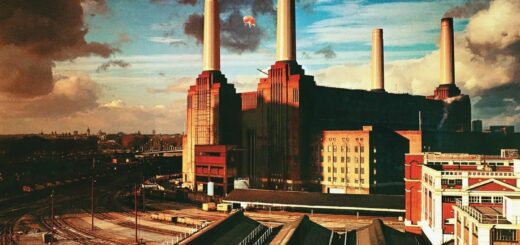T’Internet – A Bootleg Fan’s Paradise
A brief look at the development of bootleg trading and its transformation after the introduction of the internet. The article looks at new electronic trading systems and questions what the future of bootleg trading may be in light of The Who making their own concert bootlegs and selling them!
—————————————————————————-
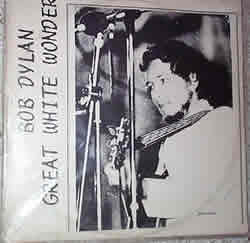 |
| Above: a re-pressing of the first rock vinyl bootleg by Bob Dylan called Great White Wonder. Below: An old TDK C60 cassette tape! |
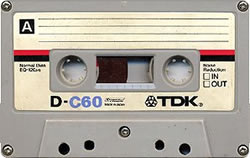 |
The first ever vinyl rock bootleg recording is commonly believed to be of Bob Dylan which had live tracks and basement recordings dating back to 1961 circulated around 1969. It was a collection of demos which went by the name of “Great White Wonder”. There are other recordings which precede this one but many are jazz and opera performances which may not be of interest to many rock fans! Since that first recording, the process of people copying and sharing these live recordings with each other has grown and grown and, of course, the internet has changed the process of sharing and opened up the hobby to many more people!
Classified Recordings
Back in the old days, people used to place adverts in classified sections of the music press and fanzines in order to get in touch with people who were trading live bootleg recordings. This time consuming process could have taken several weeks before you got your hands on your favourite bands unofficial recordings which were usually done by a member of the audience with a portable recording device. Record fairs were also a great place to pick up bootleg recordings up until it was made illegal by a General Agreement on Tariffs and Trade (GATT) Treaty in 1988 made that activity less visible!
Additionally, the “generation” of the recording was a major issue as people were mainly trading with each other using cassette tapes around the 1990s. When you make a copy of a cassette tape, it gradually looses quality the more copies are made down the line. Thus higher generation copies of the original recording were sometimes at bit rubbish if you were not fortunate enough to be in the “inner circle” of bootleg traders obtaining low generation ones.
Although there were issue with copy generation quality and it took longer to trade, people would wait in anticipation of their post man bringing them a gem in the post that they had been waiting for. They may have appreciated more what they had as a good quality bootleg was certainly a less common possession that they are today.
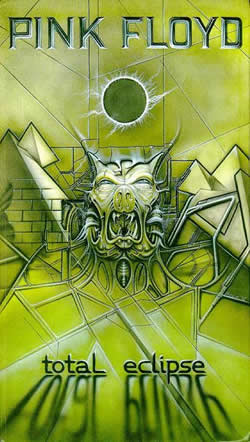 |
| Total Eclipse – A Retrospective 1967-1993 from Great Dane Records, GDR CD 9320, from 1993 |
With the ever increasing acceptance of the compact disc in the early 90s by the general public, pressed CDs were the new gem to get hold of. Once excellent example is the Total Eclipse from Great Dane records of Italy. The manufacture of bootlegs by some bands in Italy was actually illegal until a tightening of the law prevented it!
Enter Internet Stage Left
One of the main “costs” of bootleg trading was actually finding new people to trade with. No doubt people built up a contact list of people they had traded with in the past and kept in regular communication via snail mail, but acquiring new trading partners would still have been time consuming!
USENET
The advent of the internet as a means of communication revolutionised the world of bootleg trading. It brought the hobby from out of the printed media world into the inter-connected digital global village! The dawn of USENET chat rooms had begun!
USENET (UserNetwork) is a distributed server system that uses articles read like email which allows communities of people to communicate with one another. There were (and still are I might add) message boards where people could find trading partners for their favourite bands and thus share their lists of bootlegs and find people to trade with. This took away a lot of the cost of finding people to trade with.
Forums/Message Boards
Another system whereby fans of a band could communicate with one another to discuss topics and find trading partners are discussion boards/ forums. Forums are communities of people who can start topics to discuss and reply to each other thus forming threads of conversation for all to share in. Message boards have probably taken over from USENET as a means for finding trading partners for those who wish to trade via post probably due to their ease of use as they integrate neatly into websites.
Digital Technologies
Although people were now finding trading partners on the internet, people were still trading cassette tapes. Low generation tapes which were far removed from the original lost much of the sound quality due to reproduction loosing vital details in the sound signal.
The advancement of Digital Audio Converters which turned the analogue sound from cassette tapes into digital media files again revolutionised the world of bootleg recordings. It is also causing headaches for record companies and artists today who are faced with people making perfect digital copies of officially released material.
The advancement of trading digital media files as opposed to copying cassette tapes meant that thousands of people could now get perfect copies of the original recording without loosing sound quality each time the recording was copied! The internet was really taking shape for traders.
Now that people had established communities to discuss bands and find traders and digital media files were making it possible for people to trade, people got cheeky! Not content with being able to contact people around the world from their home computer and being able to trade lossless audio, they were now wanting a technology to make things even easier!!
Lossless Media Files
When an analogue file is converted to digital, the digital file is rather large in size! If only these files could be “compressed” down to a smaller file size but without loosing any of the audio quality! Enter the compressed lossless media files!
WAV files could now be compressed in file size using the .shorten file format and algorithm and, later, along came the improved FLAC format. These formats are about 50% the size of a WAV file so are ideal for trading with people around the world as you can trade more for the same cost via post and you can also download the smaller files in less time using less bandwidth!!
Downloads
Although the internet started out primarily as a communications tool, file sharing soon became a possibility with the advent of digital media files. People were now able to upload their media files to web servers so that other people could download and enjoy them. This was a further leap forward for trading. Unfortunately, during this period in the development of the internet, trading and media files, most people had dial-up connections which were slow and cumbersome. Servers were also expensive to own and operate: especially for sharing large files. People were still primarily trading by copying CDRs for each other.
The MP3 format became the choice for many people as the file size was a tiny fraction of the original recording. But as the cost of downloading in terms of time and money was diminished by MP3, so was sound quality! MP3s are such small files because much of the original quality of the recording is simply deleted to leave behind a much worse “approximation” of what the original sound file sounded like!
Advancement of Broadband
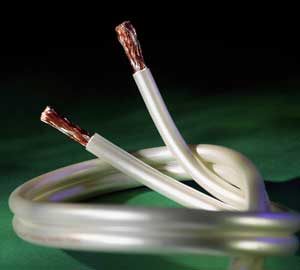 Fortunately for traders who wanted to trade online in addition to trading via the post, broadband connections to the internet were on the increase meaning people could comfortably download large lossless media files in a timely manner. The increasing number of broadband connections is currently pushing 2 download methods in particular which allow people to trade bootleg recordings with each other.
Fortunately for traders who wanted to trade online in addition to trading via the post, broadband connections to the internet were on the increase meaning people could comfortably download large lossless media files in a timely manner. The increasing number of broadband connections is currently pushing 2 download methods in particular which allow people to trade bootleg recordings with each other.
In addition to people making bootlegs available on web servers so people could download from a web page, there are software programs known as peer-to-peer software which allow people to connect to other users on the internet and share files amongst themselves. Some of these are explored below.
FTP
One of the oldest forms of sharing was using File Transfer Protocol servers which people can run from their personal computers and give the details to access their share to people on the internet. People would run servers on their computer to share material and give people access to a certain folder on their hard drive by giving them a username and password. NPF used to run an FTP server back in the day but had to be closed down eventually as is was unusable by most due to connection restrictions and the amount of people wanting to download from it!
Direct Connect
Direct Connect is a system which has a central server called a Hub that you connect to with a piece of suitable software. The most common Direct Connect software for Windows is called DC++. Basically, you have digital media files on your computer which you are making available to share on the Direct Connect Hub. When you connect to the hub, all the other users can download the files from you that you have made available. Likewise, you are able to browse and search the files that everyone else is sharing.
Some of the major drawbacks of Direct Connect are that you can only download a file from someone so long as they are online and connected to the Hub. Additionally, you can only download a particular file from one person at a time. If you have a very fast broadband connection and the person you are downloading from is not offering much bandwidth to your download, you could be waiting a long time to download!!
Torrent Download
The author believes torrent downloads are a superior solution to Direct Connect because you can download one particular file from multiple people at once! So, if you have fast broadband and there are several people sharing the particular torrent you are downloading, it can be a lot quicker!
Torrent sites work in a similar way to Direct Connect in that there are “peers” or users who are connecting to a central server in order to download files from the users connected to the server. When a file is “torrented” a small text file is created with the .torrent file extension which has the details about the file/s being shared including file names and, beneficially, details about how the file/s have been split up into smaller pieces. A 100MB file, for example, may be split into 100 X 1Mb files. This means you can download from, potentially, 100 people at once!
No Peeing in the Pool!
 |
| Image above shows a frequency spectrum analysis of a high quality WAV file. |
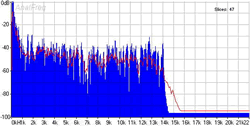 |
| The image above shows the same spectrum analysis for an MP3 file. Lots of data is destroyed when converting to MP3!
Read a MSWord Doc about why trading MP3s is not desirable! |
As previously mentioned, the advancement of digital media files and the drive to reduce file size led to the invention of MP3 files. MP3s give up sound quality in favour of smaller file sizes. It achieves this by deleting certain frequency bands that humans cannot hear anyway and also takes less “samples” of the original audio. By taking less samples of less frequencies and applying compression technologies, the files were and still are quicker to download.
The introduction of digital media files was a breakthrough for trading as you could get hold of a perfect copy of the first generation digital copy! There was no loss in quality compared to copying cassette tapes which introduced static noise and lost quality due to dirty head and the limitations of the technology. Unfortunately, digital media files became a double edged sword!
People who trade MP3s and pass them off as being copies of the original digital media files are polluting the trading pool and spoiling the recordings that are available for collectors to enjoy. Downloading or trading via post for something you believe is a perfect copy of the original is rewarding when you get a copy of the original. But it can be disheartening when you receive a sub-standard recording!
There are two solutions for all involved. People should not burn MP3s to discs as audio discs and then trade them with other people. This greatly increases the risk of passing on sub-standard audio. Additionally, something called MD5 files can be used for people downloading to both verify they have a perfect copy of a download and they can compare the contents of the MD5 file to a database of original recordings perhaps to ensure they have an original first generation copy!
The Future of Trading?
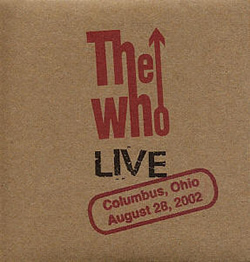 |
| The Who Encore Series Bootlegs: the band bootlegging themselves! |
The introduction of the internet as a means to communicate and share bootleg recordings transformed trading from the early days of responding to classified ads in music publications, into a world wide network of traders. Costs in terms of time finding traders and then waiting for the postman have been eroded and new challenges added in the form of lossy MP3 files. But what could the future hold?
Whilst running the risk of sounding like the people on Tomorrows World predicting that everyone would be driving round in the Sinclair C5 everywhere, is it as ludicrous to suggest that record companies may actually put a system in place to make money from bootleg trading?
People trade bootlegs with one another for free and no money usually changes hands bar a stamp or two. So how could record companies make money from bootleg trading and how could that affect the future of trading?
Peer-to-peer file sharing networks like the old Napster that had millions of people sharing officially released and copyrighted material were shut down after legal battles between record companies, artist representative bodies and the illegal sites. Many still exist of course. But there are many now legitimate sites which are perfectly legal using the format that the old Napster pioneered only slightly changed. For a fee, people can download and listen to as much as they like on the new Napster and iTunes without breaking the law. Is it possible that record companies will try to make money from bootleg trading?
Even though concert recordings made by fans in the audience are not “official releases” they are still reproductions of copyrighted material and are, technically, against the law to own and reproduce. They are quite illegal in many cases and against the terms signed between concert promoters and artists, for example.
The only way that record companies could feasibly attempt to phase out bootleg trading where the artists and record companies make no money would be for artists to record their own live shows and make them available on official websites. But that is not really likely considering bands and labels would want the material released in excellent quality which would mean quality recordings and post-production being done. It may not be a viable business model “acceptable” to bootleg collectors who may want to have several if not all recordings from every night of every tour of their favourite band!!
Saying that though, The Who recently released all of their concert recordings on CD/DVD for a small fee (proceeds going to charity) and even distributed them in bootlegger style wallets with basic artwork!! Perhaps The Who will pioneer in this area of selling bootlegs of themselves and cause other bands to follow suit who are currently in the mainstream!
So, unless record companies vigorously pursue torrent and Direct Connect websites with cease and desist orders, as well as suing individual traders who trade by post, the status quo of people sharing all sorts of files and recording on and off line will continue well into the future!
—————————————————————————-
 Feel free to discuss this article on the forum on this thread.
Feel free to discuss this article on the forum on this thread.
—————————————————————————-
Bibliography
Internet
http://en.wikipedia.org/wiki/Bootleg_recording
http://backtrax-records.co.uk/floydboots/pages/history.html

